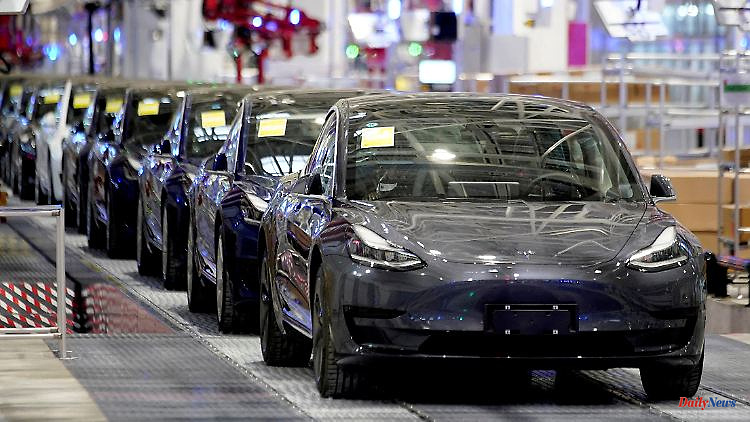The US carmaker Tesla is struggling with falling demand in the important Chinese car market - and is therefore now lowering prices again. The domestic competition is also causing problems for the group. The stock is coming under increasing pressure.
The US electric car manufacturer Tesla has again reduced its prices in the important Chinese market due to sales problems. For the Model 3 and the Model Y, the Americans in the People's Republic are now asking for more than ten percent less than recently, as the company announced on its website. It is the second price reduction since autumn last year.
In China, Tesla is having to fend off increasingly strong domestic competition from suppliers such as BYD, Xpeng and Nio. Before the turn of the year, Mercedes-Benz also had to reduce prices in China for its EQS luxury body, the all-electric version of the flagship S-Class, and for the electric EQE model. Tesla also lowered prices in Japan.
In December, sales of Chinese-made Teslas fell 44 percent to 55,796 vehicles - a five-month low. After the latest price cut, the Model Y now costs 229,900 yuan (around 31,900 euros) in China, down from 265,900 yuan before. The Tesla share had recently come under pressure due to weaker worldwide delivery numbers.
In the past year, the paper had lost two-thirds of its value - among other things because Tesla boss Elon Musk had to throw billions of shares on the market for the takeover of Twitter. Tesla is still valued on the stock market at almost 350 billion US dollars - significantly more than Volkswagen (equivalent to 77 billion dollars), BMW (61 billion dollars) and Mercedes-Benz (75 billion dollars) together.
Skeptical analysts like Bernstein expert Toni Sacconaghi estimate that Tesla could face demand and utilization problems at its factories as competition in its markets increases. The largest markets for the company are still China and the USA, the European plant in Grünheide near Berlin is currently ramping up production.












